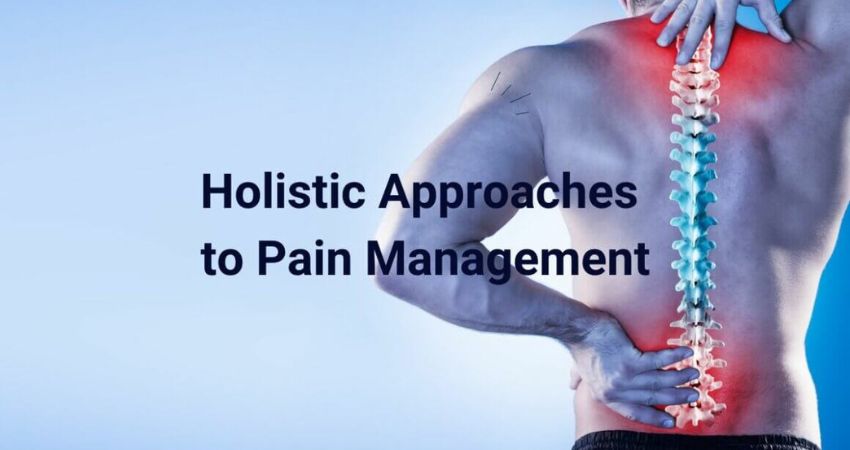Holistic Approaches To Chronic Injury Management: Chronic injuries can significantly impact one’s quality of life, affecting physical function, emotional well-being, and overall health. Traditional approaches to injury management often focus solely on symptom relief or localized treatment, overlooking the interconnectedness of the body and mind. However, a paradigm shift is underway, with a growing recognition of the importance of holistic approaches to chronic injury management. By addressing the underlying causes of injury and considering the individual as a whole, these approaches offer a comprehensive and sustainable path to healing. In this article, we explore the principles and benefits of holistic approaches to chronic injury management and their potential to revolutionize healthcare.
Understanding of Holistic Approaches To Chronic Injury Management
Chronic injuries, characterized by persistent or recurring pain and dysfunction, pose significant challenges for both patients and healthcare providers. These injuries often result from repetitive stress, overuse, poor biomechanics, or underlying health conditions, and may affect various areas of the body, including muscles, tendons, ligaments, and joints. Unlike acute injuries, which typically heal within a relatively short period, chronic injuries require a multifaceted approach that addresses both physical and psychosocial factors contributing to pain and dysfunction.
Chronic injuries are a big deal for both people with the injuries and the folks who take care of them. These injuries cause a lot of pain and trouble that keeps coming back. They happen because of things like doing the same movements over and over, not moving right, or having health issues. They can mess up different parts of the body, like muscles, tendons, ligaments, and joints.
Unlike quick-fix injuries that get better pretty fast, chronic injuries need a bunch of different ways to help them get better. It’s not just about fixing the body; it’s also about understanding how feelings and thoughts affect the pain and trouble.
Embracing Holistic Principles

At the core of holistic approaches to chronic injury management is the recognition of the interconnectedness of body, mind, and spirit. Rather than treating symptoms in isolation, holistic practitioners consider the whole person, taking into account factors such as lifestyle, diet, stress levels, emotional well-being, and social support systems. By addressing the underlying imbalances and promoting self-healing mechanisms, holistic approaches aim to restore harmony and optimize health and function from within.
Integrating Conventional and Complementary Therapies
Holistic approaches to chronic injury management embrace a wide range of therapeutic modalities, including both conventional and complementary treatments. Conventional treatments such as physical therapy, medication, and surgery may be complemented by alternative therapies such as acupuncture, chiropractic care, massage therapy, and mind-body practices like yoga, tai chi, and meditation. By combining evidence-based interventions with holistic modalities, practitioners can tailor treatment plans to meet the unique needs and preferences of each individual.
Addressing Root Causes and Risk Factors
One of the key principles of holistic injury management is identifying and addressing the root causes and risk factors contributing to chronic injuries. This may involve assessing biomechanics, movement patterns, posture, ergonomic factors, and lifestyle habits that may exacerbate or perpetuate pain and dysfunction. By addressing these underlying issues, practitioners can help patients break the cycle of injury recurrence and promote long-term healing and prevention.
Empowering Self-Care and Patient Education
Holistic approaches to chronic injury management emphasize patient empowerment and self-care practices as essential components of healing. Through education, guidance, and skill-building, patients learn to take an active role in their recovery process, making informed choices and adopting healthy habits that support healing and resilience. This may include ergonomics training, exercise prescription, stress management techniques, nutritional counseling, and self-care strategies to manage pain and promote well-being.
Cultivating Mind-Body Awareness
Mind-body awareness plays a central role in holistic injury management, as it encourages individuals to tune into their bodies’ signals and cultivate a deeper understanding of the mind-body connection. Practices such as mindfulness, breathwork, and body awareness exercises help patients develop greater awareness of posture, movement, tension patterns, and emotional triggers that may contribute to chronic injuries. By fostering mind-body awareness, patients can learn to release tension, reduce stress, and optimize their movement mechanics for improved function and resilience.
When we talk about mind-body awareness, we’re really talking about the connection between what’s going on in our heads and what’s happening in our bodies. It’s like realizing that our thoughts, emotions, and physical sensations are all linked together.

Imagine this: you’re feeling stressed out because of work or school. Your mind might be racing with worries, and you might even feel tension in your shoulders or stomach. That’s the mind-body connection in action.
Now, let’s think about how this relates to injuries. Say you’ve got a nagging pain in your lower back. It’s been bothering you for a while, and you’re not sure why it won’t go away. Mind-body awareness comes into play here because it helps you tune into your body’s signals and understand what might be causing that pain.
Practices like mindfulness, where you focus on the present moment without judgment, can help you become more aware of what’s going on in your body. When you’re mindful, you might notice that your back hurts more when you’re feeling stressed or when you’re sitting in a certain way.
Breathwork is another powerful tool for building mind-body awareness. By paying attention to your breath, you can learn to calm your nervous system and reduce the physical effects of stress on your body. Plus, deep breathing can help you relax tense muscles, which might be contributing to your injury.
Fostering Collaborative Care
Holistic injury management means that many different kinds of doctors and specialists work together as a team to help patients with complicated injuries. This team might have physical therapists, chiropractors, massage therapists, acupuncturists, nutritionists, psychologists, and other experts. They all share their knowledge and skills to make a plan that helps patients heal in the best way possible.
When these experts work together, it’s called collaborative care. They talk to each other and make sure everyone knows what’s happening with the patient. This makes the treatment better and keeps everything organized, especially for patients with long-term injuries. So, collaborative care is really important for helping these patients get better.
Conclusion
holistic approaches to chronic injury management offer a transformative approach to healing that goes beyond symptom management to address the root causes and holistic needs of individuals. By embracing principles of integrative care, patient empowerment, mind-body awareness, and collaborative practice, holistic practitioners can provide comprehensive and personalized care that promotes healing, resilience, and optimal well-being. As the healthcare landscape continues to evolve, embracing a whole-person approach to injury management holds the promise of improving outcomes, enhancing patient satisfaction, and revolutionizing the way we approach health and wellness.



